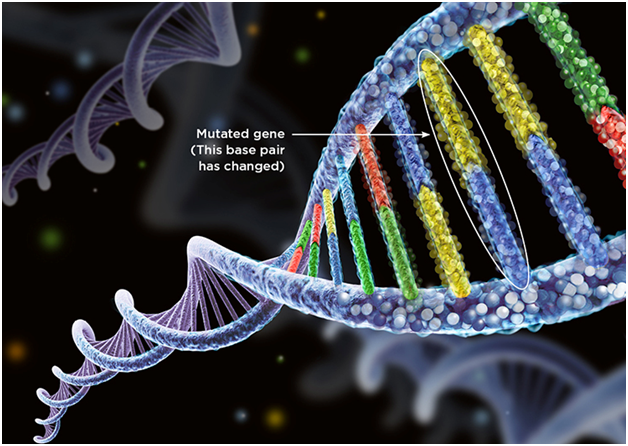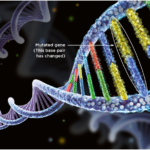Since the mid-1970s, healthcare organizations have struggled to align “data processing” with their overall business objectives. Fast forwarding to today, healthcare operations have clearly evolved to the point where information technology (IT) supports all facets of business and clinical operations via the electronic health record (EHR).
Despite our progress, most hospital and health system CEOs and CIOs still consider IT a separate entity disconnected from the overall organization’s strategic business goals. So why does this gap persist? For many reasons with the most common being the increasingly complex government directives in the quest to improve care quality and reduce healthcare spending. The crux of the problem is the application of the IT strategic planning process itself.
Historically, data processing managers were not granted executive titles and thus did not sit at the strategic planning table — that is until automated information management pushed the boundaries of that logic. The design of automated systems evolved rapidly to the point of generating solutions to problems that had not yet been discovered. IT professionals suddenly found themselves trying to keep up with solving growing business challenges. Moreover, in the mid-1980s personal computing became a ubiquitous consumer and business fixture.
Healthcare leaders began to assume (incorrectly) that IT managers would respond on demand to business needs. But IT had also grown in functional and structural complexity, requiring for the first time intensive strategic planning in order to deliver services that successfully meet operational objectives.
Misalignment challenges endure
Despite best efforts, the misalignment of healthcare strategic business and IT planning remains today for several reasons:
• Ad-hoc or assumed process, meaning there is no structured decision-making process in place (e.g., lack of IT governance, decision-guiding principles and clear understanding of IT’s contributions)
• Absence of leadership supporting IT project management
• Non-engagement of IT in organizational improvement processes requiring automation
• Rejection of IT influence and/or guidance during technology implementations
Most providers believe that their organization’s IT governance is securely in place through the oversight of their IT steering committee. However, the majority of these committees are concerned primarily with the day-to-day progress of projects nearing completion or entertaining new IT project requests from departments or business functions or both. What many of these committees are not doing is looking ahead to the “big picture” strategy that will move the organization forward into a data management and an analytics focused world.
Accountable care is strategic risk eye opener
Accountable care’s risk-sharing initiatives are bringing to light the significant roadblocks resulting from the misalignment of the IT and business functions. To achieve accountable care success in the most efficient and effective way, every organizational function must align operationally and strategically. But how does an organization go about closing the gap?
For starters, providers can implement a formalized and structured process to identify shortfalls and overlaps in business operations areas, a critical step in transitioning to the accountable care world. To succeed, organizations must know what their true costs are and must ensure that every operational task is contributing to the overall bottom line and meeting enterprise strategic objectives.
Differing structural developments of accountable care organizations (ACOs) are taking place across the country and are rapidly bringing a hotbed of issues to light. It is an industry-wide fact that a profusion of data is upon us and that ACOs can’t operate without it.
Developing ACOs have sprouted a plethora of project roadmap ideas. The challenge for organizations is deciding which one to choose. Many hospital leaders have their own perspective of the new value-based care model but are losing sight of its true definition. Simply put, accountable care requires a hospital to provide all the necessary care at an exact payment amount for a defined group of Medicare recipients.
Executives moving their organization courageously into the accountable care arena are coming to two realizations:
1. “I need to know that everything we are doing contributes to operational excellence to attain the best margin possible” (i.e., anything not contributing is dead wood and needs to go);2. “I need to know the cost of procedures and processes of care” (i.e., not the charge for a procedure or process of care, but instead what the entire actual procedure really costs the organization).
These moments strike at the heart of the big picture question, “Do I have the information to answer these two questions?” with the usual response being a resounding, “No!”
So what is the execution plan to pull together and leverage data to both achieve desired ACO outcomes and financial goals? This answer is IT and business strategy planning alignment. The best approach to achieve complete alignment is innovatively integrating IT and business strategic planning through a method called “enterprise architecture.”
Enterprise architecture introduces a new way of looking at IT and the rest of the health enterprise’s scope of technical functions in driving large-scale complex alignment projects. IT departments must have ready access to skilled professionals to meet demands.
The long-term value of implementing enterprise architecture — to map, integrate and, document IT alignment to business objectives and strategic goals — is made possible through a consistently applied set of highly vetted supporting guidelines.
As an example, let’s consider these two hypothetical business-specific questions as an example of the critical need and responsibility to align operations and strategy with IT:
1. How much does a total knee replacement actually cost to perform?
2. Which physician’s workflow provides the highest quality outcome?
Now apply these two questions to every care condition treated or touched by every healthcare organization, medical practice or clinic, business affiliation, or legal entity as part of the ACO. The answers rest squarely within the province of the IT unit, where the application analysts, database analysts, and other technical resources are responsible for ferretting out and extracting the data from nearly every inpatient, ancillary, and ambulatory information application.
To do so in an optimal way, organizations must work together to build a central data repository with advanced analytics capabilities onto a single platform that standardizes, integrates and aligns all clinical care information specific to individual patient cases at the highest detailed level. An example of the level of detail included in a patient case would include elements specific to the items and devices used during a procedure and the drugs ordered in support of that procedure and specific to the individual patient. Hence, this all-encompassing approach to clinical care data management in support of decision-making enables the use of both point-of-care analytics dashboards, as well as targeted population case management programs, which ultimately contribute to population trending and predictive analysis as de-identified patient data.
The resulting reservoir of aggregated data is used to develop reports of detailed cost accounting by procedure and per patient. The captured and analyzed data equates to true costs by procedure and includes consumables used in the procedure workflow so that that organization can make informed and reasonable accountable care decisions going forward.
Bringing it all together
To align business and IT strategy through enterprise architecture, two significant leadership actions must occur. First, a strategic planning process must be initiated that includes an assessment of all processes, goals, and materials documented by the organization and deemed important to the business. This evaluation yields a logical “engineered” approach through systematic use of comparative algorithms that identifies the gap between what the business has documented as important and the reality of day-to-day operations, as well as how IT can support this approach. Specifically, this approach, combined with analytics, gives leaders a sound and accurate source of truth in assessing what stays and what goes in supporting the future state definition of the ACO.
The second necessary leadership action calls for a detailed cost accounting exercise to related contracts, costs, uses, and clinical outcomes. This standardization effort is aimed directly at finding the point at which the best clinical outcome is achieved, at the lowest possible expenditure.
These two actions seem simple enough on paper, but when put in motion they are actual quite complex. Both actions are likely two of the largest, most complex, most daunting, and time- and labor-intensive projects ever to be undertaken by an organization. Despite the level of effort, both are CRITICAL to your success moving into the accountable care, value-based reimbursement world of the future.
Healthcare organizations can adapt to changing times and achieve desired results by better integrating IT into operational and strategic decisions. Fast changing market forces, if left unheeded, will only exacerbate what is already a profound, multifaceted challenge in most organizations. The surest way to achieving long-lasting, solid ACO success is applying a formalized and structured enterprise architecture approach to projects that identify and correct misalignment between IT and your organization’s strategic objectives.






































































